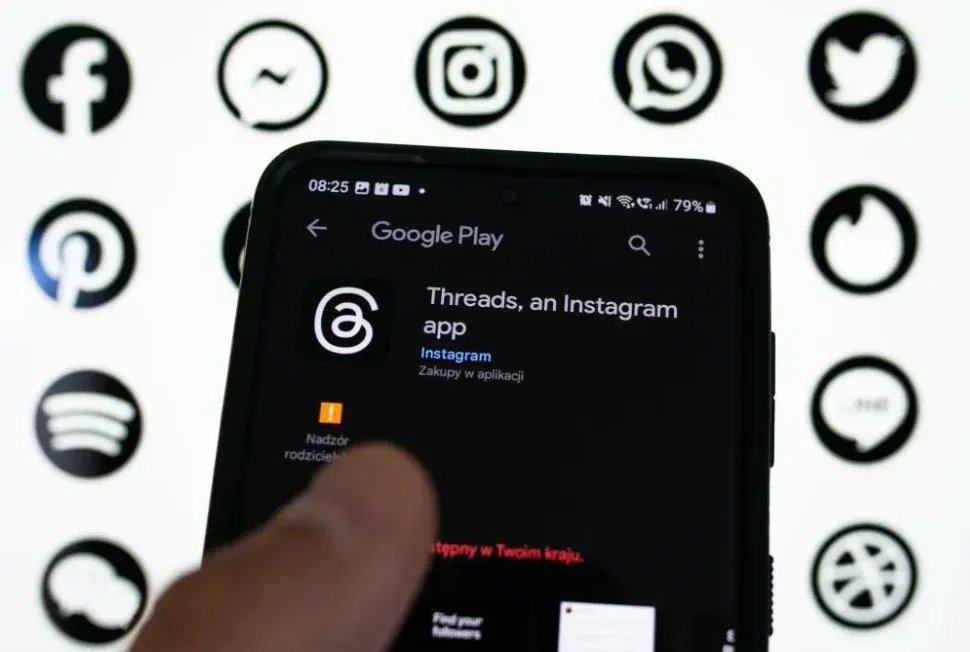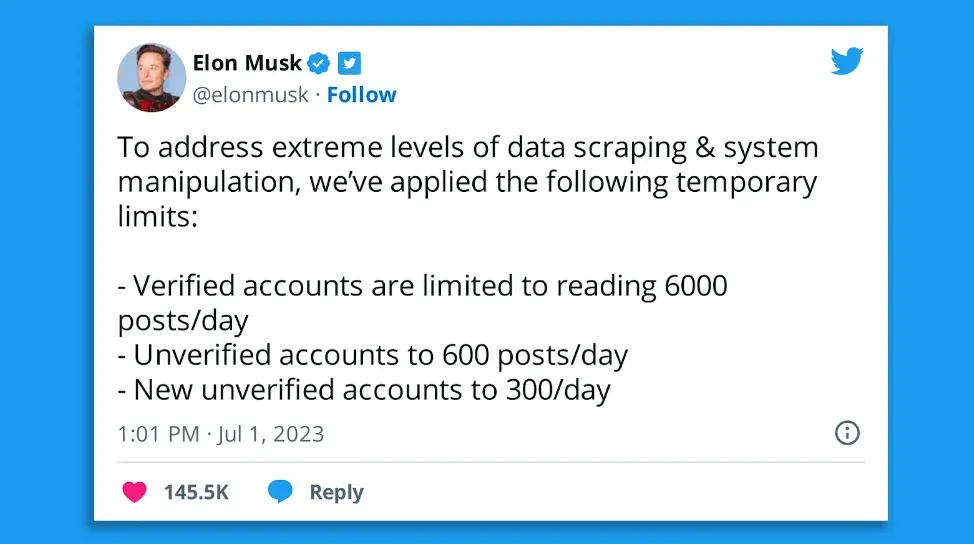
Dear Studio Fam,
The week's tech news is unquestionably dominated by the new product launch from Meta, but we discuss whether or not Threads is actually a new app or just a new feature of Instagram. We also look at some major changes to Twitter in the run up to the Threads launch, legal beef starting up between Twitter and Meta, and circle back to a story we reported on previously about celebrity endorsements of FTX.
Instagram Threads Are A Thing Now

Rumors have been circulating that Mark Zuckerberg is developing a Twitter competitor and this week those rumors were finally put to rest with the launch of Threads. Seeing an opportunity to compete with a “sanely run” version of Twitter, the new Threads experience builds on top of existing Instagram users’ social graphs to instantly populate a feed of written content with conversational reply features.
While initial sign ups have been record breaking, it’s not clear whether Threads counts as a true standalone app or merely a feature extension of Instagram. While it exists in the App Store as a separate downloadable app, the only way to sign up is by using your existing Instagram credentials. And once your Threads account is created, it is impossible to delete it without also deleting your Instagram account.
Initial feedback on the experience has been mixed with much positive coverage focusing on the large number of people who have tried the app in the first two days of launch. But the quality of the fundamental experience is lacking for many users who complain that their Threads feed is filled with written content from accounts that are driven primarily by funny memes or visual appeal. There is also just one feed inside of Threads that includes algorithmically boosted content alongside accounts that the user follows; it’s impossible to see a feed of only followed accounts. The algorithm powering these recommended threads is also secret (unlike the public Twitter algorithm) and the censorship rules are far more onerous, allegedly in service to Mark Zuckerberg’s goal of making Threads a “friendlier” place than Twitter.
And there’s no word yet on whether Threads will enter the metaverse.
Twitter Adds Rate Limits To Fight Bots

Last week Twitter instituted new rate limits for all users in an effort to fight bots and AI scrapers stealing Twitter content. Originally set at a mere 600 posts per day for unverified users (ie, users who don’t pay for a blue checkmark), the rate was slowly lifted throughout the day as complaints poured in from users that the limit was just too low. The goal of the new limits is to increase the marginal cost of running fake Twitter accounts and to force AI companies to pay for API access if they want to train their models on Twitter data. Naturally, the perpetual critics of Elon blamed the new limits on everything from his technical incompetence to the false story that Elon had failed to pay his Google Cloud bill (actually Twitter renegotiated its Google Cloud contract the week prior).
Twitter Threatens Meta For Stealing Trade Secrets

In the wake of Meta’s launch of Twitter clone Threads, Twitter has threatened Meta with legal action for stealing its trade secrets and hiring former Twitter employees who might be using confidential information in their new jobs. In response to the letter, Meta Communications Director Andy Stone said "No one on the Threads engineering team is a former Twitter employee — that's just not a thing,” according to CBS News. But this is clearly carefully worded: doubtlessly there are many non-engineering teams involved with Threads and this statement does not preclude the possibility of former Twitter employees with confidential information working on Threads in non-engineering roles.
Taylor Swift Might Not Be So Smart About FTX

We previously reported that Taylor Swift had refused a sponsorship deal with bankrupt crypto firm FTX out of fear that the company was dealing in unregistered securities. Elon Musk himself actually chimed in on this issue stating it did not surprise him because Swift’s father is a respected investment banker. But new reporting calls this story into question with two anonymous sources saying that Swift had actually accepted the deal only to have it canceled at the last minute by Sam Bankman-Fried himself.
Representatives for Swift refused to comment so we will probably have to wait for the SBF’s trial before any type of confirmation of these allegations is brought to light.

